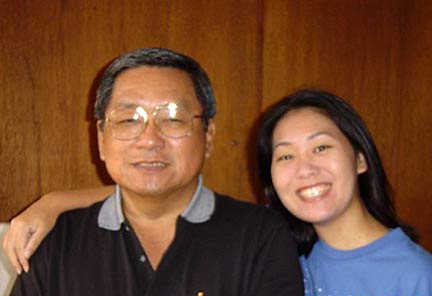
|
Measures promote
organ donations
But one bill has been changed
to address management rights
The Legislature sent two bills to Gov. Linda Lingle intended to encourage bone marrow and organ donations by public workers, but one ended up with a different purpose.
PROGRAMS OFFER
|
Organ recipients and donors support House Bill 1318, which would give state and county employees seven days of paid leave per year to donate bone marrow and 30 days of paid leave to donate an organ.
Senate Bill 1352 was a companion bill that did the same thing, but lawmakers changed it to address union concerns about management rights.
Both measures are under review by the administration, said spokesman Russell Pang.
He said the governor hassome concerns about SB1352, which would prohibit the state and counties from transferring workers without union approval.
Rep. Kirk Caldwell (D, Manoa), House Labor and Public Employment chairman, said the bill was revamped to address a state Supreme Court decision in January.
The unions feared the decision could be used to tip the balance to management in collective bargaining, he said.
Caldwell said he thinks SB1352 would maintain the status quo. "My read of it is they (management) have to negotiate conditions for transfer when they get into collective bargaining."
He said Wong, one of his constituents, talked to him about the importance of HB1318 to increase organ and bone marrow donations.
Wong, who received a kidney from a deceased donor, and Luci Dwight, 32, of Kailua, who donated a kidney to her father, were among those urging the bill's passage.
Even if just one or two people are helped each year by public employee donors, that would allow others to move up on the wait list, Dwight and Wong said.
Giving state and county donors paid leaves "will really make a difference" because many people who want to donate a kidney can't afford to take time off, Wong said.
Wong was diagnosed with lupus at age 18 while attending Princeton University. Returning home, she earned a master's degree in public health at the University of Hawaii.
After that, she could work only part time because she was always sick, she said. She waited two years for a kidney transplant and was on dialysis for a little more than a year.
"I didn't have a normal life from the time I was in high school until 2002," she said.
Dwight, who volunteers at the Organ Donor Center, said her father, Herbert Endo, was having kidney failure because of diabetes.
"I did some research to find out what dialysis was all about and what the wait list was about and found I could be a living donor and got tested," she said.
Once she knew she could donate a kidney, she had to talk him into it, Dwight said. "He said, 'No, no, no. I'll go on the wait list.'
"I said, 'We can do this and it will be OK.' It took a while for him to be convinced that I was going to be OK."
She said her father is doing great now and is working full time, running an electrical contracting business.
"As a living donor, you get the reward of seeing what your donation does," Dwight said. "For me, seeing my dad when he was sick and being able to do a transplant and see him well again is just amazing."
Darryl Ing, Organ Donor Center executive director, said 90 percent of about 426 people on the wait list need kidneys.
"You hear on the news about all the efforts to reduce drunk driving to save lives, and all the different initiatives to save lives," Ing said. "The same with organ donations: It's to save lives."
E-mail to City Desk
[News] [Business] [Features] [Sports] [Editorial] [Do It Electric!]
[Classified Ads] [Search] [Subscribe] [Info] [Letter to Editor]
[Feedback]
